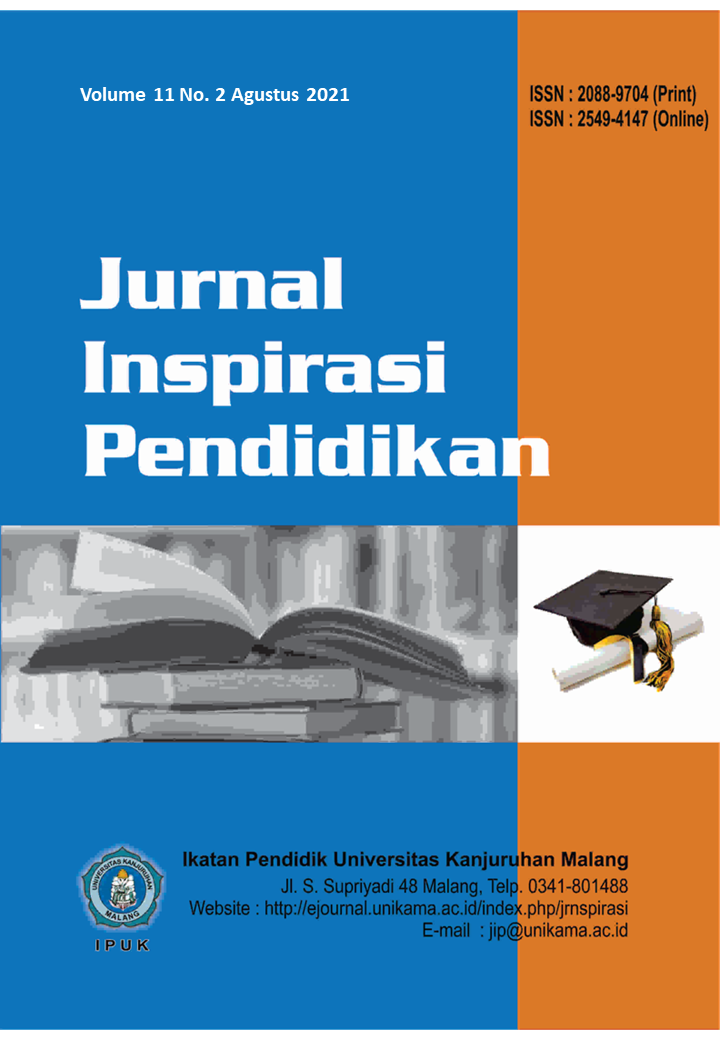Task-based Language Teaching Implementation In Integrating EFL Students' Writing Skil
Main Article Content
Abstract
Lacks of students participation and also lacks of their basic understanding in constructing good sentences had become the major background of the researcher to conduct this study. This research article deals with a study conducted with students of Economic Faculty enrolled in EFL program. This study employed mixed methods analysis which analyzed the implementation of Task-based Language Teaching on EFL students and examined on how the strategy employed will impact on students’ writing skills. In addition, this research is also intended to find out the perception of instructor and students on the application of Task-based Language Teaching. The data in this research were collected through the process of observing, interviewing and analyzing students’ writing. By comparing the results, we can conclude that the students show improvement, either from the perspective of students’ participation or achievement. Moreover, the results also indicate that the majority of students and also instructor show positive perception towards the implementation of Task-based Language Teaching which was acknowledged with the growth of their study motivation and enjoyment. However, problems that deal with time availability and feedback are identified during the process, showing that a better preparation and further research are needed for better implementation in the future.
Keywords: Task-based Language Teaching, Writing, EFL Classroom
Article Details
The journal allows the author(s) to hold the copyright without restrictions.
References
Graham, C. R., & Mark, M. W. (1996). Adult Education ESL Teachers Guide. Texas: A&I University Kingsville.
Johnson, K. (2001). An Introduction to Foreign Language Learning. London: Pearson Education Limited.
Marashi, Hamid & Dadari, & Lida. (2012). The Impact of Using Task-based Writing on EFL Learners' Writing Performance and Creativity. Theory and Practice in Language Studies, 2500-2507
Miles, Matthew B., & Huberman. (2014). Qualitatie Data Analysis, A Method Sourcebook. Washington: Sage.
Nunan, D. (1989). Designing Tasks for the Communicative Classroom. Cambridge: Cambridge University Press.
Oradee, T. (2012). Developing Speaking Skills Using Three Communicative Activities (Discussion, problem-solving, and role-playing). International Journal of Social Science and Humanity, 533-535.
Payman, S., & Gorjian, B. (2014). Effect ofTak Based Strategies on Students' Writing Skill among Translation Students. European Journal of Business and Social Sciences, 201-216.
Richards, R. (2002). Methodology in Language Teaching. Cambridge: Cambridge University Press.
Rohani, S. (2013). Positive Versus Negative Communication Strategies in Task-based Learning. TEFLIN Journal, 158-179.
Sae-ong, U. (2010). The Used of Task-based Learning and Group Work Incorporating to Develop English Speaking Ability. Thailand: Shrinakhrinwirot University.
Sayedi, S. H., & Farahani, A. A. (2014). The Application of Task-based Writing and Traditional Writing on the Development of Reading Comprehension of EFL Advanced Iranian Learners. International Journal of English Language Education, 225-240.
Sholihah, U. (2011). Improving Students' Writing Ability using Task Based Language Teaching (TBLT). Sebelas Maret University, Surakarta.
Willis, D., & Willis , J. (2007). Doing Task-Based Teaching. Oxford: CUP.
Willis, J. (1996). A Frame for Task-Based Learning. London: Longman.
Zhaochun , S. (2015). A Tentative Study on Task Based Teaching of Writing to English Majors in Chinese Setting. English Language Teaching, 71-79.

